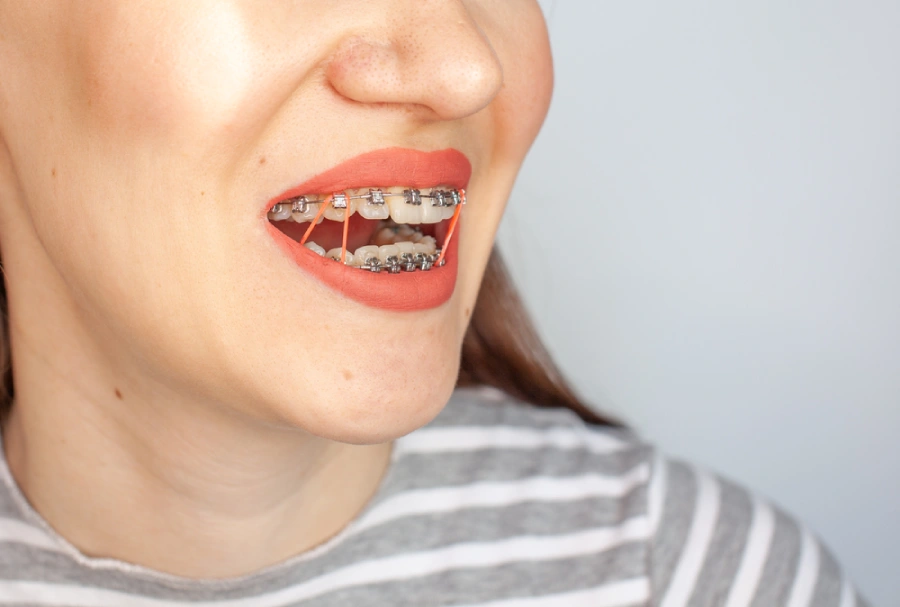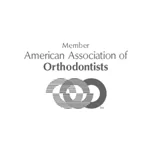Open-mouth breathing is breathing through the mouth instead of the nose. In babies, toddlers, and children, open-mouth breathing is most common at night, but it can also occur during the day.
While most of the time mouth breathing occurs on occasion because your child is sick or has allergies, it can occur regularly due to more severe issues. If mouth breathing doesn’t resolve during childhood, your child could be at risk of developing several serious medical conditions.

My Baby Sleeps with Their Mouth Open – Is This Bad?
In most cases, baby and toddler mouth breathing usually occurs when the child suffers from congestion or allergies. This typically clears up on its own.
When children continuously breathe through their mouths, however, you may begin to notice symptoms such as irritability, cracked lips, and excessive crying in younger children or newborns.
When children display frequent open-mouth breathing, it can cause numerous dental health concerns. These dental health concerns include:
- Enlarged tonsils
- Enlarged adenoids
- Temporomandibular disorder of the jaw
- Erosion of the teeth
- Teeth grinding
- Myofascial pain
- Periodontal disease
- Impacted teeth
- Malocclusion
- Tooth decay
- Chronic bad breath
In addition to dental health concerns, open-mouth breathing can cause other overall health issues. Your child may also experience these health concerns if they display frequent open-mouth breathing.
- Dry mouth
- Drowsiness during the day
- Headaches
- Sleep deprivation
- Restless sleep
- Poor ability to focus or poor memory
- Snoring
Child mouth breathing typically occurs at night when the child is sleeping, often indicating a problem in the nasal passages. If left unchecked, open-mouth breathing over many years could lead to the development of orofacial myofunctional disorders.
This is why it is extremely important that if your child is not sick they see a pediatric dentist ASAP to help resolve why they experience regular mouth breathing at night.
Why Is My Child Breathing Through Their Mouth?
Whether your newborn sleeps with their mouth open or your older toddler does, it’s most likely happening because there is an obstruction in their nasal passage. Some common underlying issues your child may breathe through their mouth include:
- Deviated septum
- Enlarged vessels, bones, or tissue in their nasal passage
- Tongue tie
If your child is mouth breathing and does not have a blocked nasal passage, then it could be due to problems with their bite and mouth structure. The shape of your child’s jaw may prevent them from correctly closing their mouths.
Therefore, they breathe out of the mouth because it cannot shut properly.
If your toddler sleeps with their mouth open but breathes through the nose, they do not have an issue with their mouth or bite structure. Instead, they have a blockage in the upper airway, such as their throat or nose.
Can Mouth Breathing Cause Behavior Problems?
Open-mouth breathing can cause behavioral problems in children, contributing to their inability to focus, irritability, and lack of sleep. Open-mouth breathing can cause problems in your child’s mental development because if they cannot properly breathe, their brain cannot function correctly.
Some common behavioral health concerns your children might experience due to mouth breathing include:
- Slower cognitive development
- Difficulty concentrating and solving problems
- Disturbed social and emotional development
- Possibility of being diagnosed incorrectly with ADHD or ADD
- Poor school performance
When Can Babies Breathe Through Their Mouths?
Open-mouth breathing can occur in babies as young as three to four months old, as they do not develop the reflex to breathe through their mouth until that point. If your baby or young child is mouth breathing at night, it can become a regular habit even when they are awake.
It is especially important to be aware of mouth breathing in babies since it can affect the development of their brains if left untreated.
Your child is at risk of breathing through the mouth if they suck their thumb or have prolonged use of pacifiers or if they stop breastfeeding or bottle feeding before three months of age.
Can Mouth Breathing Affect My Child’s Facial Development?
Yes, chronic mouth breathing can lead to many types of changes in facial structure, such as:
- A longer face
- A narrower jaw
- A high-arched palate
How Can I Tell if My Child Has Sleep Apnea?
Loud snoring, pauses in breathing during sleep, restless sleep, and daytime sleepiness can be signs of sleep apnea. Consult a doctor if you notice these symptoms.
Will My Child Outgrow Mouth Breathing?
It depends.
Some issues, such as enlarged adenoids, may resolve with age. Others require intervention. It’s important to have your child evaluated to see what is causing their mouth breathing in order to recommend the appropriate course of action, if any.
Can Mouth Breathing Cause Bad Breath or Dental Issues?
Yes, mouth breathing can dry out the mouth.
This can lead to a decrease in saliva production, which in turn can contribute to not only bad breath but also other issues over time, like tooth decay.
Can Mouth Breathing Affect a Toddler’s Speech?
If your child breathes through their mouth most of the time, it can affect their speech. Your child is likely to struggle with certain speech sounds or develop a lisp. If your child develops a lisp, they may have difficulty saying the letter “s” properly.
Their speech may be affected by the mouth breathing because it can cause a tongue thrust swallowing pattern. This typically occurs during late childhood, but it is due to your child breathing through their mouth for a long period of time. In severe circumstances, this can also cause trouble with swallowing and make your child more prone to choking.
How Do You Treat Mouth Breathing in Children?
Once you notice symptoms of mouth breathing in your child, make an appointment with their pediatric dentist. The pediatric dentist may need to refer your child to another professional such as a speech language pathologist to diagnose why they are breathing through the mouth properly. Some treatment options for mouth breathing in children include:
- Allergy management
- Breathing training
- Surgery to remove enlarged tonsils, adenoids, tongue tie, or deviated septum
- Weaning of thumb sucking
- Orthodontic treatment to guide teeth and jaw movements
How to Stop Mouth Breathing in a Child
You should make an appointment with your child’s pediatric dentist to be evaluated for possible orthodontia. If it is not orthodontia that’s the issue, then your child should be evaluated to see if their adenoids and tonsils need to be removed.
If that is not the case either, you should have your child evaluated for:
- Throat or nasal obstruction
- Allergies
- Sinus and nasal issues
- Tongue tie
- Appropriate weight for their height, as an increased weight can contribute to open-mouth breathing
Final Thoughts
Open-mouth breathing in children can be reversed, but it is essential to take steps to prevent it from happening. If you notice that your child breathes through their mouth, and they are not sick, make an appointment at The Super Dentists to help determine the cause.
Learn more about our Pediatric Dental Services at The Super Dentists. Schedule an appointment today and bring your family to a Super Dentists location near you!










